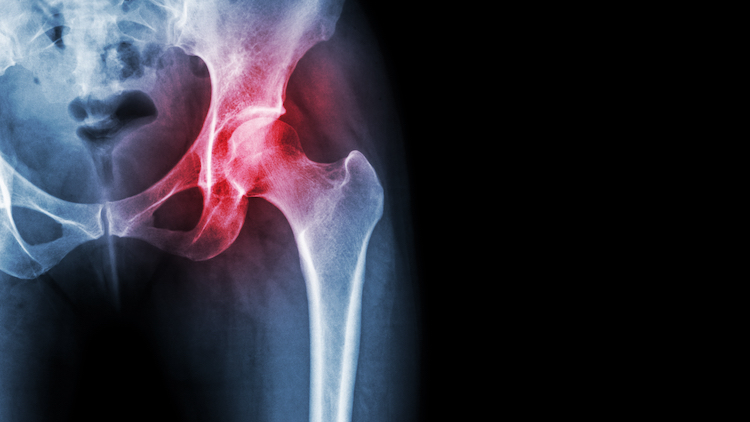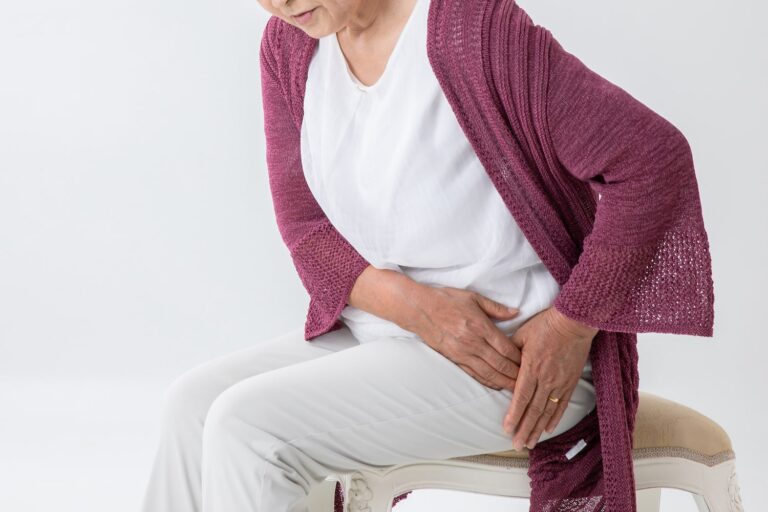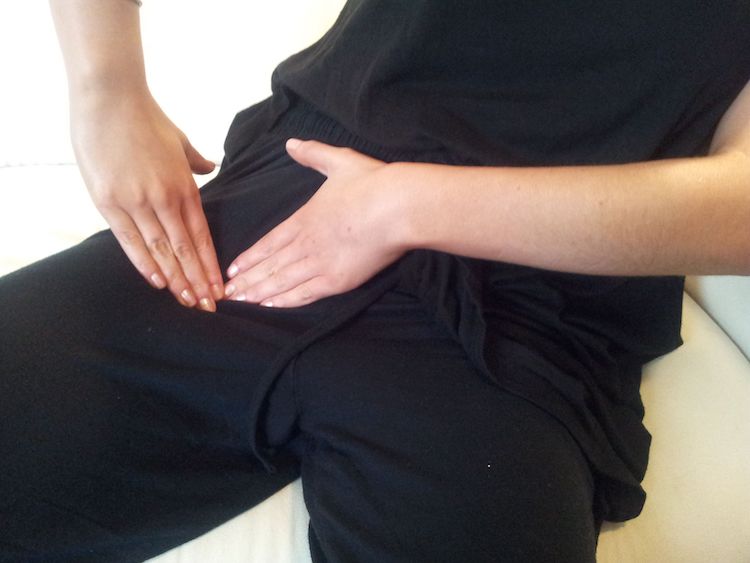Hip Pain Center Columbus GA
Since 1993, the leading hip pain doctors in the Southeast region; treating chronic hip pain treatment customized to patient needs
Are you looking for a hip pain doctor? Do you suffer from terrible hip pain? Get a referral and book an appointment to see us!
If you are seeking non-surgical treatment for hip pain, anywhere in the Southeast, it's time to get a referral and make an appointment to see the hip pain doctors at Southeast Regional Pain Center.
The award-winning hip pain doctors and staff at Southeast Regional Pain Center are here to help address the severe pain you are experiencing. We have been treating hip pain for over 30 years.
Among the most well-known and most respected pain centers in the United States, at Southeast Regional Pain Center we treat chronic hip pain on a regular basis, with non-surgical treatments and interventions focused on our patients’ specific circumstances.
Hip pain is an extremely common condition affecting a significant number of Americans. According to recent studies, hip pain affects a substantial portion of the American population. According to sources like the Centers for Disease Control and Prevention (CDC) and the National Institute of Arthritis and Musculoskeletal and Skin Diseases (NIAMS), it is estimated that nearly 20 million Americans over 18 years years old suffer from hip pain. It is the second most common joint for chronic pain. This data shows you that you are not alone! Chronic hip pain is a prevalent health issue in the United States. And people are suffering. We are here to help.

Step 1: Get a Referral from Your Doctor or Regular Physician and Visit the Best Hip Pain Treatment Center in the Southeast!
All patients are required to get a referral from their physician prior to setting an appointment with the hip pain doctors at Southeast Regional Pain Center.
If your hip pain is affecting your daily life, it is time to take control of your situation. If your feel any number of symptoms, the first step is to get a referral from your doctor for an appointment at Southeast Regional Pain Center as soon as possible.
Hip Pain is Crushing--and Can Stem from a Number of Causes

Hip pain can stem from various underlying causes, including but not limited to:
1. Osteoarthritis: This is a degenerative joint disease that can cause hip pain due to the breakdown of cartilage in the hip joint.
2. Bursitis: Inflammation of the bursae, small fluid-filled sacs that cushion the hip joint, can lead to hip pain.
3. Tendinitis: Inflammation of the tendons around the hip joint, often caused by overuse or repetitive activities, can result in hip pain.
4. Hip fractures: A break in the hip bone, usually caused by trauma or osteoporosis, can cause severe hip pain.
5. Muscle strains or sprains: Overstretching or tearing of the muscles or ligaments around the hip joint can lead to hip pain.
6. Hip labral tear: A tear in the ring of cartilage (labrum) that surrounds the hip joint can cause hip pain, often accompanied by clicking or locking sensations.
7. Hip impingement: When the bones of the hip joint rub against each other, it can cause pain and limited range of motion.
8. Infection or inflammation: Infections or inflammatory conditions such as arthritis can cause hip pain.
9. Nerve impingement: Conditions like sciatica or nerve compression can cause radiating pain from the lower back to the hip and leg.
The hip pain doctors at Southeast Regional Pain Center know that understanding the root cause of your hip pain is crucial in determining the most appropriate treatment approach. By looking at your medical history, providing an in-person, thorough examination and utilizing our advanced diagnostic techniques, our hip pain doctors at Southeast Regional Pain Center can accurately identify the cause of your discomfort.
STEP 2
Call to Make Your Appointment to See a Hip Pain Doctor for Hip Pain Treatment Option
Once you have your referral, simply call so our hip pain doctors can schedule you for the most convenient appointment that fits into your schedule. At that time, they can answer any questions you may have. Our hip pain specialists will help you find the best treatment solution possible for your situation.
Symptoms and Varieties of Hip Pain
Hip pain can manifest in different ways, with symptoms varying depending on the specific condition. Common symptoms of hip pain can vary depending on the underlying cause, but some typical symptoms include:
1. Pain: Hip pain can range from a dull ache to sharp, intense pain. It may be localized to the hip joint or radiate to the groin, thigh, buttocks, or knee.
2. Stiffness: The hip joint may feel stiff, making it difficult to move or perform certain activities.
3. Limited range of motion: Hip pain can restrict the normal range of motion, making it challenging to walk, climb stairs, or perform daily activities.
4. Swelling and inflammation: Inflammation in the hip joint can cause swelling, tenderness, and warmth around the area.
5. Clicking or popping sensations: Some individuals may experience clicking, popping, or grinding sensations in the hip joint during movement.
6. Limping: To alleviate pain, individuals with hip pain may develop a noticeable limp or altered gait pattern.
7. Muscle weakness: Hip pain can lead to muscle weakness in the hip and surrounding areas, affecting stability and mobility.
8. Numbness or tingling: In certain cases, hip pain may be accompanied by numbness or tingling sensations in the hip, thigh, or leg, indicating nerve involvement.
It is important to remember that these symptoms can vary depending on the specific cause of hip pain. Consulting with our hip pain doctors at our Pain Center is recommended for an accurate diagnosis and appropriate treatment.

Pain Medication as Part of a Hip Pain Treatment Plan
In conjunction with other treatment methods, pain medications can play a crucial role in managing hip pain. At Southeast Regional Pain Center, our hip pain doctors may prescribe a variety of pain medications for chronic hip pain. It is important to note that the use of pain medications should be closely monitored and guided as part of any effective treatment plan.
There are Many Treatment Methods for Hip Pain
Southeast Regional Pain Center offers a comprehensive range of non-surgical treatment for hip pain. While surgical interventions may be necessary in severe cases, our pain center specializes in non-surgical approaches to hip pain treatment.
Non-surgical methods to treat chronic hip pain can include:
1. Physical therapy: A physical therapist can design a customized exercise program to strengthen the muscles around the hip joint, improve flexibility, and enhance overall hip function. They may also use techniques such as manual therapy, stretching, and modalities like heat or cold therapy to alleviate pain and promote healing.
2. Pain medicine/pain-management techniques: Various pain management strategies can be employed, such as over-the-counter or prescription pain medications, corticosteroid injections, or other types of joint injections to reduce inflammation and provide temporary relief.
3. Assistive devices: The use of assistive devices like canes, crutches, or walkers can help reduce weight-bearing on the affected hip joint, providing support and relieving pain during walking or other activities.
4. Lifestyle modifications: Making certain lifestyle changes can help manage chronic hip pain. This may include maintaining a healthy weight to reduce stress on the hip joint, avoiding activities that exacerbate pain, and using proper body mechanics and ergonomics to minimize strain on the hip.
5. Activity modification: Modifying activities that worsen hip pain, such as avoiding high-impact exercises or repetitive motions, can help alleviate symptoms and prevent further damage to the hip joint.
6. Heat or cold therapy: Applying heat or cold packs to the hip joint can help reduce pain and inflammation. Heat therapy can relax muscles and improve blood flow, while cold therapy can numb the area and reduce swelling.
7. Alternative therapies: Some individuals find relief from chronic hip pain through alternative therapies such as acupuncture, chiropractic care, or massage therapy. These approaches may help reduce pain and improve overall well-being.
Our team of experienced hip pain doctors will carefully evaluate each patient’s condition and recommend the most suitable treatment approach.

Choose Southeast Regional Pain Center to See an Experienced Hip Pain Doctor
Southeast Regional Pain Center has been known for decades as the premier destination for hip pain treatment in the Southeast region. We combine the expertise of highly skilled hip pain doctors, state-of-the-art facilities to treat hip pain, and advanced, effect treatment methods. With a focus on patient-centered care, we provide personalized treatment plans tailored to each individual’s needs. Our pain center maintains strong collaborations with other healthcare providers, ensuring seamless coordination of care. We attack the sources of pain and the symptoms.
Hip pain is a prevalent condition affecting a significant number of Americans. Southeast Regional Pain Center in Columbus, GA, offers comprehensive hip pain treatment options, including non-surgical approaches, for individuals seeking relief. With a team of experienced hip pain doctors and a patient-centered approach, our center is dedicated to providing the highest quality of care. Remember, a referral from your treating doctor is necessary to access our services. Contact Southeast Regional Pain Center today to schedule a consultation and take the first step towards a pain-free life.